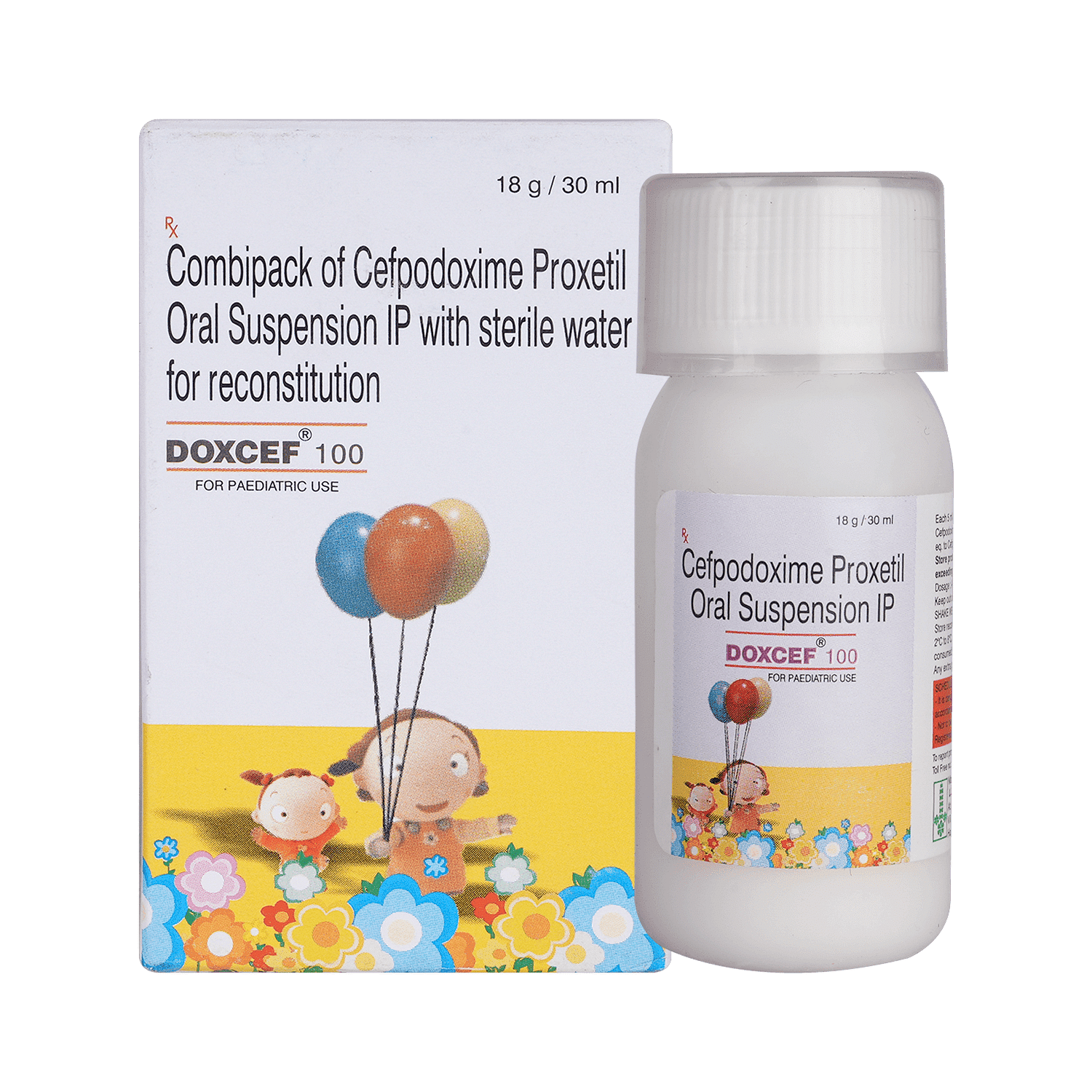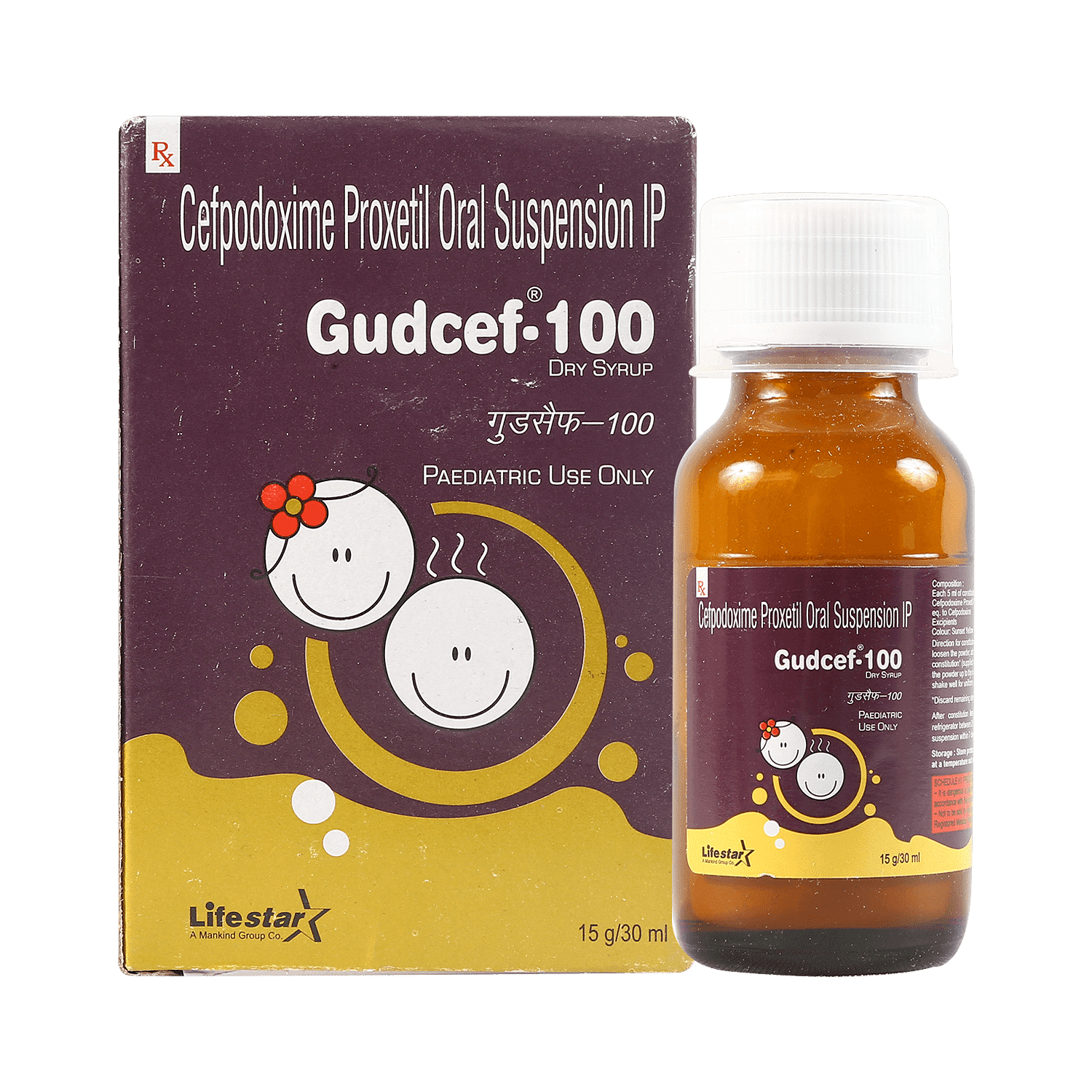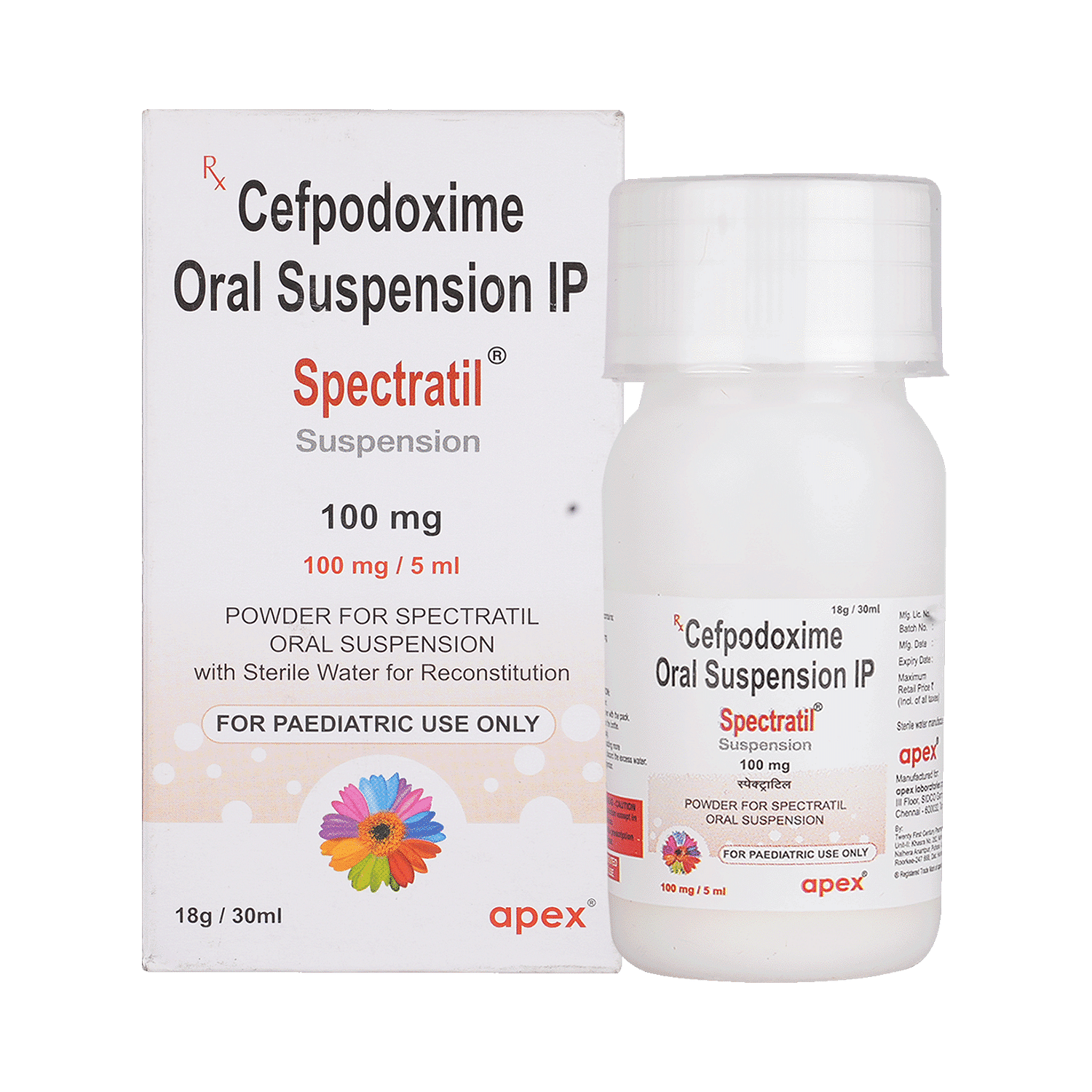
Infepod 100mg Syrup
Manufacturer
Demax Biotech Pvt Ltd
Salt Composition
Cefpodoxime Proxetil (100mg/5ml)
Key Information
Short Description
Infepod 100mg Syrup is an antibiotic medicine used to treat a wide range of bacterial infections in children, including ear, eye, nose, throat, lung, skin, gastrointestinal tract, and urinary tract infections, as well as typhoid fever.
Dosage Form
Syrup
Introduction
Infepod 100mg Syrup is an antibiotic medicine commonly given to children for the treatment of a wide range of bacterial infections. It is effective in treating infections targeting the ears, eyes, nose, throat, lungs, skin, gastrointestinal tract, and urinary tract. It is also used to treat typhoid fever in children and adolescents.
Directions for Use
Give this medicine with food to avoid an upset stomach. Encourage your child to drink plenty of water in case diarrhea develops as a side effect.
How it works
Infepod 100mg Syrup is an antibiotic that works by preventing the formation of the bacterial protective covering (cell wall) which is essential for the survival of the bacteria. By doing so, this medicine stops the infection-causing bacteria from growing further and prevents the infection from spreading without making the bacteria resistant to further treatment.
Quick Tips
Your child must complete the entire course of antibiotics. Stopping too soon may cause the bacteria to multiply again or become resistant or cause another infection. Give this medicine with food to avoid an upset stomach. Encourage your child to drink plenty of water in case diarrhea develops as a side effect. Conditions like common cold and flu are caused by viruses. Never use this medicine for such conditions. Only give Infepod 100mg Syrup to your child for their current infection. Never save medicine for future illnesses.
Related Medicines

Doxcef 100mg/5ml Syrup

Gudcef-100 Dry Syrup

Laripod DS 100mg/5ml Syrup

Doxryth 100mg/5ml Syrup

Biocep 100mg Syrup

Spectratil 100mg/5ml Syrup

Jakdoxim 100mg Syrup

Polares 100mg/5ml Syrup

StayHappi Cefpodoxime Proxetil 100mg Syrup

Voxocef Syrup
Frequently asked questions
What if I give too much of Infepod 100mg Syrup by mistake?
Giving an extra dose of Infepod 100mg Syrup is unlikely to cause harm. However, contact a doctor immediately if you think your child has taken too much. Overdose may cause unwanted side effects and could worsen their condition.
Are there any possible serious side effects of Infepod 100mg Syrup?
Some serious side effects include persistent vomiting, kidney damage, allergies, diarrhea, and severe gastrointestinal infections. Always consult your child’s doctor for help in such a situation.
Can other medicines be given at the same time as Infepod 100mg Syrup?
Infepod 100mg Syrup may interact with other medicines. Tell your doctor about any other medications your child is taking before starting Infepod 100mg Syrup, and always consult them before giving any medication to your child.
Can I get my child vaccinated while on treatment with Infepod 100mg Syrup?
Antibiotics do not interfere with vaccines or cause negative reactions in a child who has recently received one. However, children should wait to receive a vaccine until they have recovered from the illness. Once your child feels better, vaccination can be given.
Which lab tests may my child undergo while taking Infepod 100mg Syrup on a long-term basis?
The doctor may recommend periodic kidney function and liver function tests to monitor your child's condition during extended treatment with Infepod 100mg Syrup.
The mucus coming out of my child’s nose is yellow-green. Is it a sign of a bacterial infection?
Yellow or green mucus in the nose does not necessarily indicate that antibiotics are needed. During a common cold, mucus thickens and changes from clear to yellow or green. Symptoms often last for 7-10 days.
My child is having a sore throat and ear infection. Can I give antibiotics?
No. More than 80% of sore throats and ear infections are caused by a virus, and antibiotics are not used for viral infections. If your child has a sore throat, runny nose, a barking cough, pain, and discharge from the ear, it is likely due to a virus. Consult your child’s doctor for guidance.
Does a common cold caused by viruses always result in a secondary bacterial infection? When to start an antibiotic to prevent infection?
In most cases, bacterial infections do not follow viral infections. Using antibiotics to treat viral infections can cause side effects without benefitting your child’s health. Only use antibiotics after consulting with your child's doctor.
Can Infepod 100mg Syrup impact my child’s digestive system?
Children's stomachs are sensitive, and they can experience stomach upset while taking antibiotics. The beneficial bacteria in their gastrointestinal tract may also be affected. Using Infepod 100mg Syrup may kill off the good bacteria along with the bad, increasing the risk of developing other infections. If your child is experiencing diarrhea while on Infepod 100mg Syrup, do not stop the medication course. Instead, call your child's doctor to discuss appropriate next steps. In some cases, the doctor might adjust the dosage.
Can Infepod 100mg Syrup lead to bacterial resistance in my child?
Yes, using antibiotics without a proper doctor’s supervision or for improper durations can contribute to bacterial resistance. This can happen when antibiotics are not used correctly or in combination with other factors.


